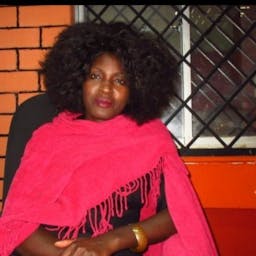Human Rights , Social Justice and Youth
Nov 20, 2021
Story
Africa is the continent with the most youthful population in the world. According to the African Union,the continent has more than 400 million young people aged between the ages of 15 to 35 years[1]. Young people in the African context go through various challenges, from unemployment, conflict, modern day slavery, lack of opportunity to jobs among a myriad of challenges.
For example, African migrants have been subjected to slavery in Libya, Slavery was abolished many years ago, but the world heard of the harrowing experiences happening in Libya. Take for example the case of Sunday Labarot who had come from Nigeria destined for Europe, trekking through the desert plains of Niger and got captured in Libya and sold as a slave.[2]Others in a bid to find greener pastures end up being mistreated. At the local levels, young people’s rights get violated on daily basis. For example, a look at various human rights and linking this to young people whether in school or out of school will share episodes of rights violations.
Many young people have lost their lives for example in Nairobi, some are victims of mob justice others are victims of police brutality. Others have unfairly been dismissed from work, while others have gotten expelled from learning institutions. Still others have been body shamed online or gone through online bullying and all manner of violations and oppression. Cyber bullying for example has resulted into depression, suicide , anger[3] and feelings of low self-esteem.
Against this backdrop and with support from Innovations for Change(I4C), Haki Nawiri Afrika is implementing a project that seeks to address shrinking civic space among communities in Kenya, which also aims at addressing various injustices through knowledge and skills. Through human rights education for university students and out of school youth, the project has found out that indeed rights violations of young people whether in school and out of school come about as a result of ignorance, lack of information and absence of access to referral mechanisms, in some cases, young people have normalised violations and do not see this as something wrong but have learnt to live with it. The start of the human rights training involves bringing together in school (university students) and out of school youth and conducting a pre-test to determine their level of knowledge of human rights and identify the various rights violations that take place in different communities and how these violations are responded to.
The lack of awareness of human rights also leads to selective seeing when rights violations are happening. For example, if a child is walking and not in school during school hours, the best option would be to engage the child and try to find out why, this child may be in problems and may be at risk for instance of getting lost especially given the wave of children disappearing that has been happening in Kenya in the recent times. Knowledge and information on human rights makes people to be concerned about the plight of others, it pushes people to do something when they see injustice, it makes people come together collectively to demand change. Awareness about rights helps reduce rights violations, it makes the community become aware that someone is watching and hence deters would be violators, it also enables people to comfortably go about their day to day activities without fear. Awareness on rights makes people become bolder and can demand and defend rights, it also help ensure protection for vulnerable groups who include women and children.
Conducting human rights education for young people on topics such as movement building,how to navigate and handle human rights violations, understanding of human rights and social justice, various rights and how they are violated, referral mechanisms in case of a violation, various legislations, policies from national too regional and global and how people can use the law to protect themselves as well as basic understanding of the law goes a long way in protecting and promoting the rights of young people. For example, knowledge of the rights of an accused person, knowledge of the rights of an arrested person and knowing for example contacts of organisations that offer free legal aid services can help a young person who has been arrested and is therefore in distress. Deliberations on various rights and how they are violated and how to address the violations for example through documentation, reporting and making follow ups or forming a community based youth and child protection mechanisms with the aim of monitoring rights violations at the local level goes a long way in inculcating a culture of human rights and social justice within a community.
Training on policy processes and how to engage in policy issues in relation to rights enhances advocacy among young people enabling them to articulate issues affecting their various communities and this in the long run helps to demand change.Organising sessions with duty bearers for example in the justice system through dialogues helps to share concerns of both parties in relation to human rights , this can also help address antagonistic relationship and mistrust that many a times exists between ordinary community members and justice institutions. Learning about advocacy as part of human rights education empowers young people with both knowledge and skills to fight for their rights and those of others, it enables them speak out when there is injustice within the community and at the same time mobilise community members to demand change.
Human rights therefore should be part and parcel of our everyday life because everyone is vulnerable to violations , being conscious about human rights enables us protect ourselves and others from violations and speak out when violations and injustices happen in our communities.
References
[1] https://au.int/en/youth-development
[2] https://time.com/longform/african-slave-trade/
[3] https://www.capitalfm.co.ke/thesauce/5-emotional-effects-of-cyber-bullying/




